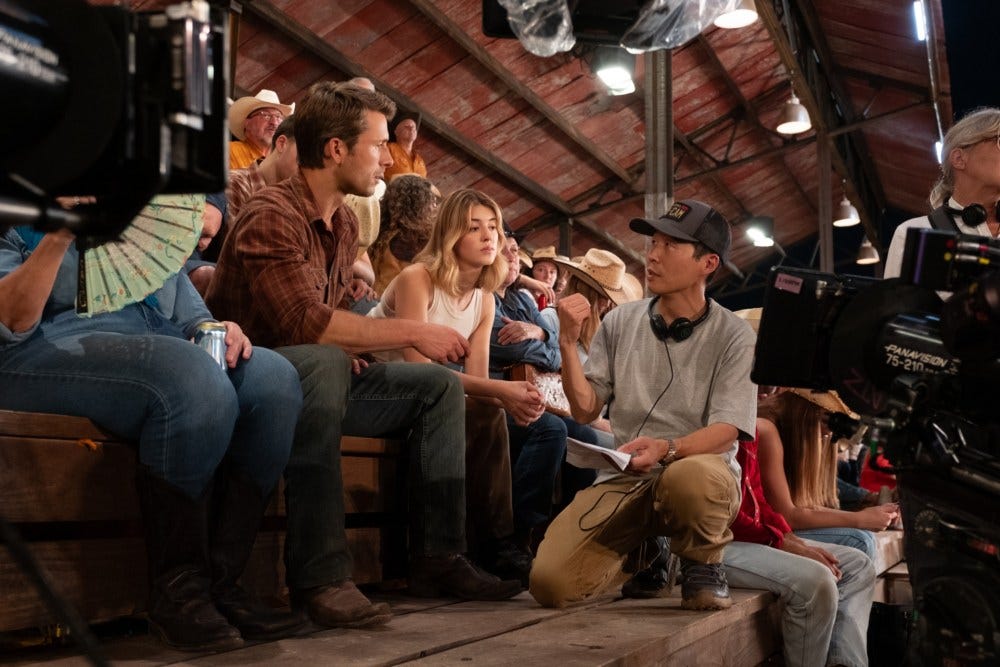Lee Isaac Chung Goes From Arkansas to Hollywood Blockbusters
By James Moreau | 31 May, 2025
The 2020 Minari arthouse hit catapulted Lee Isaac Chung to helm major studio and franchise productions.
When Lee Isaac Chung wrote and directed the 2020 semi-autobiographical Minari he couldn’t have anticipated the impact it would have on his career. The A24 film takes full advantage of Chung’s picturesque childhood in rural Arkansas to which his family immigrated from South Korea. The family started a farm while Chung’s dad also worked at a chicken-processing plant.
The poignant immigrant story received widespread acclaim including Oscar nominations for Best Picture, Best Original Screenplay and Best Director and won a Golden Globe Award for Best Foreign Language film. The film also won both the dramatic Grand Jury Prize and the Audience Award at its Sundance premier.
With a budget of $2 million, Minari went on to gross $15.5 million worldwide box office. This is perhaps the rare instance in which a low-budget film with no real plot but a great deal of atmospherics somehow convinced big studios of the director’s potential to helm blockbusters.
Chung’s 5th and most recent feature film — and the first distributed by a major studio is Twisters, a 2024 disaster film providing a sequel to Twister (1996). The Universal/Warner Bros. alliance generated over $372 million at the worldwide box office. It also received a 90% audience approval rating on Rotten Tomatoes compared to 58% on the original.
Chung was only 29 when his post-genocide drama film Munyurangabo premiered at Cannes, marking Chung’s directorial debut. It was the first feature film using the Kinyarwanda language and local Rwandan actors. The film garnered the Grand Prize at the 2007 AFI Fest, and renowned film critic Roger Ebert famously declared it a “masterpiece.”
Now 46, Chung has directed two Star Wars franchise episodes for Disney+, one for The Mandalorian in 2023 and the other for Star Wars: Skeleton Crew, 2025.
He is set to direct The Traveler, a sci-fi family drama feature for Skydance in which a 47-year-old biology technician involuntarily time travels.
Before graduating from Yale in 2000 as an ecology major, Chung enrolled in a “video as art” class, where he found his calling. He dropped his plans for medical school and instead earned a film-making MFA from the University of Utah in 2004.

Asian American Success Stories
- The 130 Most Inspiring Asian Americans of All Time
- 12 Most Brilliant Asian Americans
- Greatest Asian American War Heroes
- Asian American Digital Pioneers
- New Asian American Imagemakers
- Asian American Innovators
- The 20 Most Inspiring Asian Sports Stars
- 5 Most Daring Asian Americans
- Surprising Superstars
- TV’s Hottest Asians
- 100 Greatest Asian American Entrepreneurs
- Asian American Wonder Women
- Greatest Asian American Rags-to-Riches Stories
- Notable Asian American Professionals

